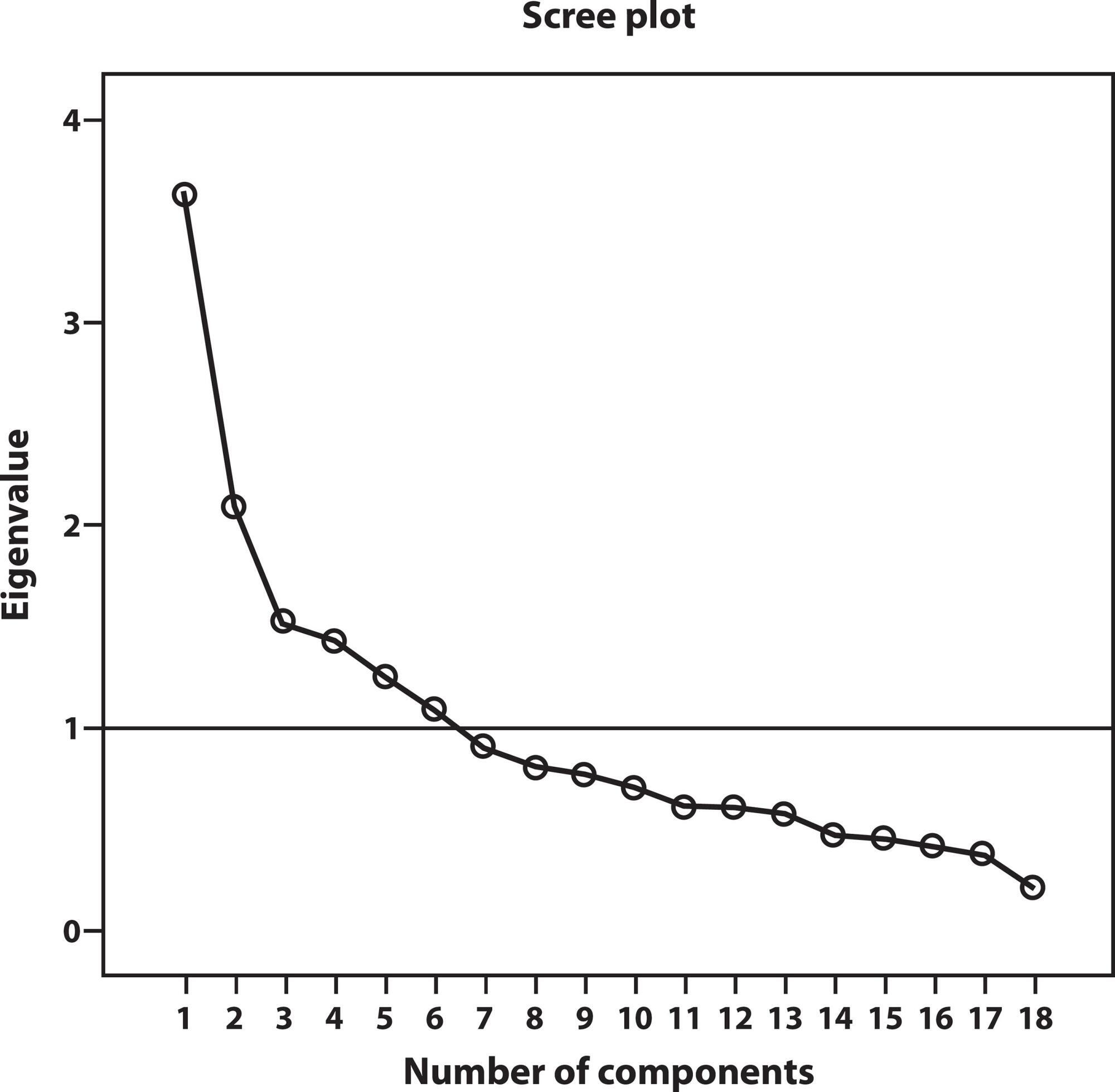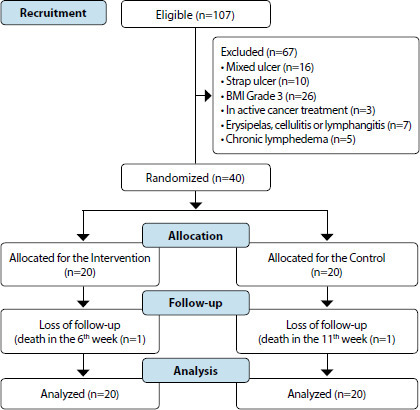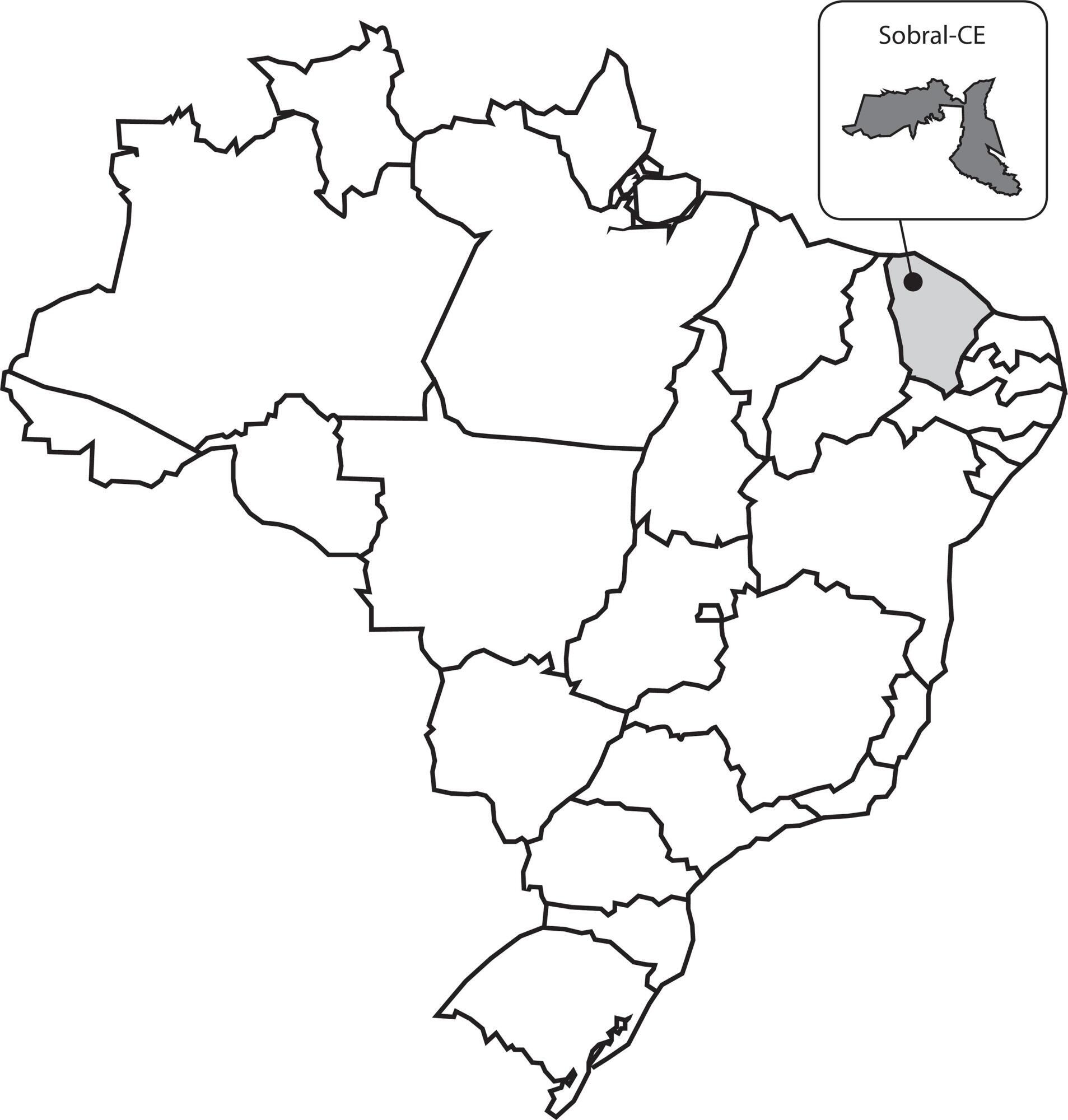-
01-01-2018
Needs in Mental Health and Research
Revista Brasileira de Enfermagem. 2018;71:2077-2078
Abstract
Needs in Mental Health and Research
Revista Brasileira de Enfermagem. 2018;71:2077-2078
DOI 10.1590/0034-7167-2018-0363
Views0Psychic suffering is a public health problem in the world because it is strongly related to the loss of functionality, and to the presence of drastic reflexes in personal life and in the social context. Psychic suffering presents as determinants not only the abilities of individuals to deal with thoughts, emotions, behaviors, interactions, but also […]See more -
01-01-2018
Necessidades em saúde mental e pesquisa
Revista Brasileira de Enfermagem. 2018;71:2077-2078
Abstract
Necessidades em saúde mental e pesquisa
Revista Brasileira de Enfermagem. 2018;71:2077-2078
DOI 10.1590/0034-7167-2018-0363
Views0O sofrimento psíquico é um problema de saúde pública no mundo pois está fortemente relacionado à perda de funcionalidade, à apresentação de reflexos drásticos na vida pessoal e no contexto social. Dessa forma, apresenta como determinantes não somente as habilidades dos indivíduos para lidar com pensamentos, emoções, comportamentos, interações, mas também aspectos relacionados à vida […]See more -
REFLECTION01-01-2018
Ethical competences for the development of nursing care
Revista Brasileira de Enfermagem. 2018;71:1810-1814
Abstract
REFLECTIONEthical competences for the development of nursing care
Revista Brasileira de Enfermagem. 2018;71:1810-1814
DOI 10.1590/0034-7167-2017-0539
Views0See moreABSTRACT
Objective:
To present an analysis of the nursing ethos based on the disciplinary foundations of nursing to propose a definition of ethical competences for nursing training.
Method:
The present proposal is a theoretical reflection, based on a literature review of the specialty, both nursing and ethics.
Results:
we suggest basing the ethical education of nursing students integrating transversally disciplinary, bioethical and civic ethical competences, considering certain educational dimensions that favor their development.
Final considerations:
We expect that the definitions of three competences of the moral scope of nursing, contribute to cross-cutting proposals that promote the values and principles of the profession.
-
01-01-2018
Competencias éticas para el desarrollo del cuidado en enfermería
Revista Brasileira de Enfermagem. 2018;71:1810-1814
Abstract
Competencias éticas para el desarrollo del cuidado en enfermería
Revista Brasileira de Enfermagem. 2018;71:1810-1814
DOI 10.1590/0034-7167-2017-0539
Views0See moreRESUMEN
Objetivo:
Presentar un análisis del êthos de enfermería en base a los fundamentos disciplinares de ésta, a fin de proponer una definición de competencias éticas para la formación en enfermería
Método:
La presente propuesta es una reflexión teórica, fundamentada en una revisión de literatura de la especialidad, tanto de enfermería como de la ética.
Resultados:
se sugiere basar la formación ética de estudiantes de enfermería integrando transversalmente competencias éticas disciplinares, bioéticas y cívicas, considerando determinadas dimensiones educativas que favorecen su desarrollo.
Consideraciones finales:
Se espera que las definiciones de tres competencias del ámbito moral de la enfermería, contribuyan a propuestas transversales que logren fomentar los valores y principios de la profesión.
-
REFLECTION01-01-2018
The professor’s body: discourses on subjectivity to reflect on nurses’ education
Revista Brasileira de Enfermagem. 2018;71:1805-1809
Abstract
REFLECTIONThe professor’s body: discourses on subjectivity to reflect on nurses’ education
Revista Brasileira de Enfermagem. 2018;71:1805-1809
DOI 10.1590/0034-7167-2017-0456
Views0See moreABSTRACT
Objective:
to reflect on the body of the nursing professor in the subjectivity discourse.
Method:
this is a reflective essay on the theoretical and practical reverberations of the nursing professor’s body based on the Deleuzoguattarian discourse.
Results:
in the theoretical framework, the body of the nursing professor was considered as a producer of subjectivities and understood without organs, surrounded by strengths, desires, and affections. In the practical framework, we discussed pedagogical strategies developed by professors, such as dramatic games, simulated scenes, presentation of the line of care and living portfolio, characterized by stimulating nursing students to value political, civic, creative, and supportive dimensions.
Conclusion:
based on the subjectivity discourses, the professor’s body was demystified as uniquely holder of knowledge, and all participants in the educational scenario were considered active protagonists of collective knowledge.
-
EXPERIENCE REPORT01-01-2018
Nursing students in the community: entrepreneurial strategy and proponent of changes
Revista Brasileira de Enfermagem. 2018;71:1799-1804
Abstract
EXPERIENCE REPORTNursing students in the community: entrepreneurial strategy and proponent of changes
Revista Brasileira de Enfermagem. 2018;71:1799-1804
DOI 10.1590/0034-7167-2017-0382
Views1See moreABSTRACT
Objective:
To report the insertion of the nursing students of the Franciscan University Center in the community through the project Adopting a Family, contributing to critical thinking within the Nursing academic production and its articulation to collective health.
Results:
In the professors’ evaluation, the activity represented an effective articulation and insertion of the university in the community; for the students, it allowed for spaces of construction, deconstruction and negotiation with the unknown and the uncertain; for the families, it enabled the feeling of being remembered and valued as human beings and citizens. Through the experiences had, the transformation of health practices goes through the emergence and valuation of new knowledge.
Final considerations:
The insertion of the university in the community is constituted by an entrepreneurial strategy that is proponent of changes, due to its more effective and resolute outreach of health issues proposed by the national health system.

-
EXPERIENCE REPORT01-01-2018
From theory to practice, operating the clinical simulation in Nursing teaching
Revista Brasileira de Enfermagem. 2018;71:1791-1798
Abstract
EXPERIENCE REPORTFrom theory to practice, operating the clinical simulation in Nursing teaching
Revista Brasileira de Enfermagem. 2018;71:1791-1798
DOI 10.1590/0034-7167-2017-0180
Views0See moreABSTRACT
Objective:
To report the experience of the operationalization of clinical simulation as a pedagogical strategy in a subject of an undergraduate course in Nursing.
Method:
Clinical simulation cycles were carried out following the steps of action research, such as: planning, action, observation and reflection, from March 2014 to July 2015 with 10 professors and 44 students from a Primary Care and Mental Health subject of an undergraduate course in Nursing.
Results:
Five cycles of clinical simulation were performed, at the end of each cycle modifications were suggested by students and professors and the operation was adjusted to meet the needs of the subject. The main points of change were: professor role, logistics, equipment, debriefing model and preparation of “simulated patients”.
Final considerations:
The clinical simulation is a possible method to be operationalized in undergraduate course in Nursing, needs pedagogical and logistic planning as well as, sensitization of professors and students.

-
EXPERIENCE REPORT01-01-2018
Clinical simulation to teach nursing care for wounded patients
Revista Brasileira de Enfermagem. 2018;71:1785-1790
Abstract
EXPERIENCE REPORTClinical simulation to teach nursing care for wounded patients
Revista Brasileira de Enfermagem. 2018;71:1785-1790
DOI 10.1590/0034-7167-2017-0170
Views0See moreABSTRACT
Objective:
to report the experience of constructing and applicating clinical simulation scenarios for the evaluation and treatment of wounds.
Method:
experience report on two simulation scenarios for nursing care of wounded patients applied to nursing undergraduates. We structured simulations based on the model from the National League for Nursing/Jeffries Simulation Framework. The scenarios were evaluated by the instrument Simulation Design Scale and the students by the experience with the simulation.
Results:
the scenarios reproduced nursing care situations with the application of role play and moulage, which allowed us to evaluate and discuss the wound treatment. Reflections on the debriefing were important for the teaching-learning process and association between theory and practice, these factors determined the satisfaction of students with the activity.
Conclusion:
using clinical simulation scenarios to teach students favored the clinical reasoning and decision-making in the evaluation and treatment of wounds.
-
ORIGINAL ARTICLE02-10-2020
Stress and health risk behaviors among university students
Revista Brasileira de Enfermagem. 2020;73(1):e20180035
Abstract
ORIGINAL ARTICLEStress and health risk behaviors among university students
Revista Brasileira de Enfermagem. 2020;73(1):e20180035
DOI 10.1590/0034-7167-2018-0035
Views0See moreABSTRACT
Objective:
To analyze the level of stress and its relationship with health risk behaviors among university students.
Method:
Cross-sectional analytical study carried out at a higher education institution in Picos-PI. A total of 377 students were evaluated for socio-demographic and academic variables, stress profile, sleep quality, alcohol use, smoking habits and level of physical activity. The Statistical Package for the Social Sciences (SPSS), version 20.0 was used for data processing and analysis.
Results:
Sleep quality was poor for 65.3% of the subjects, and sleep disturbances were found in 17.0%. Stress was observed in 68.7% of the sample. Stress was associated with the following variables: gender, time in the institution, poor sleep quality.
Conclusion:
Most of the students evaluated present some level of stress associated with poor sleep quality, which is a risk to the quality of life of these individuals.
-
09-16-2019
Construct validation: coping with HIV/AIDS in Primary Health Care
Revista Brasileira de Enfermagem. 2019;72(5):1173-1181
Abstract
Construct validation: coping with HIV/AIDS in Primary Health Care
Revista Brasileira de Enfermagem. 2019;72(5):1173-1181
DOI 10.1590/0034-7167-2018-0734
Views0See moreABSTRACT
Objective:
To validate the construct and measure the trustworthiness of a questionnaire aimed at assessing HIV/AIDS coping actions developed by health professionals in Primary Health Care.
Method:
A methodological study carried out with 397 primary health care professionals in two municipalities in the Northeast region of Brazil. The construct validity was developed by the exploratory and confirmatory factor analysis, and the reliability analyzed by the reliability and reproducibility.
Results:
The validation determined six factors retention that composed the six domains of the questionnaire. Internal consistency was 0.91 and quality of the confirmatory analysis adjustment was 0.998 for Goodness of Fit Index. The domains presented Kappa values between 0.833 and 0.997.
Conclusions:
The final questionnaire was composed of 18 items and presented feasibility of application, and potential to evaluate actions for HIV/AIDS control in Primary Health Care.

-
ORIGINAL ARTICLE11-12-2022
Low-laser light therapy in venous ulcer healing: a randomized clinical trial
Revista Brasileira de Enfermagem. 2022;75(3):e20210396
Abstract
ORIGINAL ARTICLELow-laser light therapy in venous ulcer healing: a randomized clinical trial
Revista Brasileira de Enfermagem. 2022;75(3):e20210396
DOI 10.1590/0034-7167-2021-0396
Views0See moreABSTRACT
Objectives:
to compare the effect of adjuvant low-laser light therapy versus conventional treatment alone on venous ulcer healing.
Methods:
this is a randomized clinical trial with 40 patients randomized equally to a control group (topical and compressive treatment) and intervention group (adjuvant low-laser light therapy). Outcomes of interest were Wound Healing: Secondary Intention and Tissue Integrity: Skin & Mucous Membranes, as described in the Classification of Nursing Outcomes/NOC.
Results:
groups with similar sociodemographic and clinical characteristics. Eighty-two ulcers were assessed, with an average duration of 1 to 5 years, in 1,066 nursing consultations, with a statistically significant difference in the time and number of healed ulcers (intervention group). There was a significant improvement in the nursing outcomes under study and in eight clinical indicators.
Conclusions:
low-laser light therapy improves and reduces tissue regeneration time, contributing to advances in wound treatment.

-
05-21-2021
Evolution of nursing teaching in the use of education technology: a scoping review
Revista Brasileira de Enfermagem. 2021;74:e20200422
Abstract
Evolution of nursing teaching in the use of education technology: a scoping review
Revista Brasileira de Enfermagem. 2021;74:e20200422
DOI 10.1590/0034-7167-2020-0422
Views1See moreABSTRACT
Objective:
To identify and map the technological tools of information and communication to support the teaching learning process in Nursing teaching courses.
Methods:
This is a scoping review whose search was carried out in seven databases and in grey literature. After an initial analysis of the selection, 88 texts were read integrally, and 29 made up the final sample.
Results:
Virtual learning environment and object, simulation, hypermedia, and software or cellphone applications were the tools the nursing professors used the most. Studies highlight that the application of technology was important in the teaching-learning process, since it encouraged teaching based on safe care, motivating and developing abilities/competences, supported on significant, effective, flexible, and autonomous learning.
Conclusion:
The contribution of the technology for nursing formation stands out, but it should be highlighted that its employment must be critical, reflective, based on pedagogical theories and developed by trained professors.

-
ORIGINAL ARTICLE09-30-2020
Organizational culture, authentic leadership and quality improvement in Canadian healthcare facilities
Revista Brasileira de Enfermagem. 2020;73:e20190732
Abstract
ORIGINAL ARTICLEOrganizational culture, authentic leadership and quality improvement in Canadian healthcare facilities
Revista Brasileira de Enfermagem. 2020;73:e20190732
DOI 10.1590/0034-7167-2019-0732
Views0See moreABSTRACT
Objective:
To investigate relationships among flexible and hierarchical organizational cultures, quality improvement domains, and authentic leadership competencies in Canadian healthcare facilities.
Method:
Observational cross-sectional study conducted in Alberta, Canada. Nurse managers (n=226) completed a survey including validated measures of organizational culture, quality improvement and authentic leadership. Data were analyzed using descriptive statistics, Spearman’s correlation coefficient and Chi-squared test (p<0.05).
Results:
Quality improvement through accreditation is related to organizational culture and authentic leadership. We saw a propensity for participants who reported working in a more flexible culture also reported greater quality improvement implementation and authentic leadership practices.
Conclusion:
This study assessed and reported the relationships between flexible organizational cultures, quality improvement through the accreditation process, and authentic leadership practices of healthcare managers. Flexible organizational cultures influence the adoption of authentic leadership, participatory management model and also improves quality.
-
ORIGINAL ARTICLE09-16-2019
Temporal trend of leprosy in a region of high endemicity in the Brazilian Northeast
Revista Brasileira de Enfermagem. 2019;72(5):1356-1362
Abstract
ORIGINAL ARTICLETemporal trend of leprosy in a region of high endemicity in the Brazilian Northeast
Revista Brasileira de Enfermagem. 2019;72(5):1356-1362
DOI 10.1590/0034-7167-2018-0682
Views0See moreABSTRACT
Objective:
to analyze the temporal trend and epidemiological patterns of leprosy indicators in Sobral, a municipality countryside of the state of Ceará, from 2001 to 2016.
Method:
a time series study based on data from the Department of Informatics of the Unified Health System. The time trend analysis was performed using the join point regression model.
Results:
There were 2,220 new cases of leprosy in Sobral from 2001 to 2016. Of these, 158 (7.2%) in children younger than 15 years of age, the proportion of new male cases was 52.8% (1,162), cases with grade 2 were 7.0% (156), and proportion of cases diagnosed by contact examination 5.7% (126).
Final considerations:
leprosy remains hyperendemic in adults and children, demonstrating the character of neglected disease. Analysis of the temporal trend allowed to verify that the instability in the detection coefficients, reflect operational problems in the organization of the services

-
ORIGINAL ARTICLE03-07-2022
Adaptation and validation of the Advanced Practice Nursing Competency Assessment Instrument
Revista Brasileira de Enfermagem. 2022;75(5):e20210582
Abstract
ORIGINAL ARTICLEAdaptation and validation of the Advanced Practice Nursing Competency Assessment Instrument
Revista Brasileira de Enfermagem. 2022;75(5):e20210582
DOI 10.1590/0034-7167-2021-0582
Views0See moreABSTRACT
Objective:
To adapt and validate the content of the Advanced Practice Nursing Competency Assessment Instrument (APNCAI) to Brazilian culture.
Methods:
This is a methodological study that followed the stages of translation, synthesis, back translation, evaluation by a committee of five specialists, pre-test with 31 nurses, and evaluation by the author of the original instrument. The Content Validity Index (minimum 0.90) and the modified Kappa (minimum 0.74) were calculated to evaluate the content.
Result:
In the first round of content evaluation, 18 items had to be altered because they did not reach the minimum values established. Three items have not reached a consensus in the second round and had to be sent to the author of the original version. In the pre-test, 13 items were returned to the specialists because they suffered content changes.
Conclusion:
The Advanced Practice Nursing Competency Assessment Instrument (APNCAI) – Brazilian version was cross-culturally adapted, and its content was validated.
-
ORIGINAL ARTICLE08-19-2019
Factors related to impaired comfort in chronic kidney disease patients on hemodialysis
Revista Brasileira de Enfermagem. 2019;72(4):889-895
Abstract
ORIGINAL ARTICLEFactors related to impaired comfort in chronic kidney disease patients on hemodialysis
Revista Brasileira de Enfermagem. 2019;72(4):889-895
DOI 10.1590/0034-7167-2018-0120
Views0See moreABSTRACT
Objective:
to analyze the factors related to the impaired comfort of chronic kidney diseases (CKD) patients on hemodialysis.
Method:
this is a cross-sectional study with 80 patients undergoing hemodialysis in a renal replacement therapy unit through interviews using two instruments, one for clinical and sociodemographic characteristics and the General Comfort Questionnaire, during the hemodialysis session. Mann-Whitney tests and the logistic regression model were used for data analysis.
Results:
the study found that being younger (p=0.045); being married (p=0.05); and absence of impaired physical mobility (p=0.007) were contributing factors for greater comfort in CKD patients on hemodialysis. Thus, when establishing the odds ratio, it was possible to observe that being 55 years of age or older, being single and having impaired physical mobility represents a 45.7% chance of developing this diagnosis.
Conclusions:
sociodemographic and clinical variables contribute to the study outcome, demanding attention during the planning of nursing interventions.
Search
Search in:
Nuvem de Tags
Adolescente (85) Atenção Primária à Saúde (239) COVID-19 (91) Criança (91) Cuidados de Enfermagem (269) Educação em Enfermagem (151) Educação em Saúde (139) Enfermagem (930) Enfermagem Pediátrica (86) Estudantes de Enfermagem (77) Estudos de Validação (131) Família (87) Idoso (208) Promoção da Saúde (99) Qualidade de Vida (104) Saúde do Trabalhador (86) Saúde Mental (145) Saúde Pública (82) Segurança do Paciente (150) Tecnologia Educacional (100)



